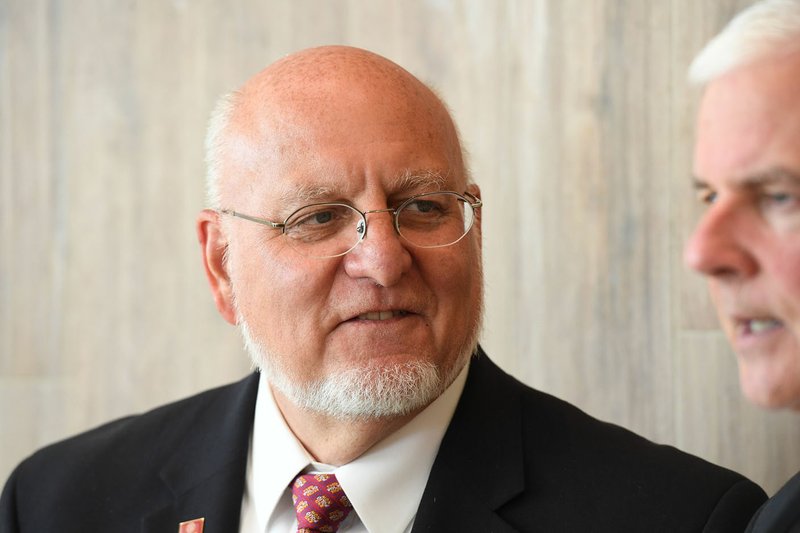ROGERS -- U.S. health care providers could stop new outbreaks of HIV with more screening, the director of the federal Centers for Disease Control and Prevention told a meeting of Northwest Arkansas public health administrators Tuesday.
The subject of human immunodeficiency virus came up at a meeting between the director, Dr. Robert Redfield, and 10 local, district and state public health administrators along with U.S. Rep. Steve Womack of Rogers.
Redfield is an expert in the study of the virus, said Loy Bailey, administrator of the Benton County Health unit for the state Department of Health.
Tracking of HIV cases in Northwest Arkansas shows the virus is usually not contracted here, according to Dr. Linda McGhee. McGhee is medical director of the Washington County HIV clinic. Most of the 1,041 identified cases in Benton, Washington and Carroll counties are contracted in California, Texas, Florida and New York, McGhee said.
Redfield said McGhee's findings are consistent with Centers for Disease Control research, which recently mapped 40,000 new cases, a year's worth. The results showed more than half the new cases came from relatively few urban centers. Such concentration is one reason the spread could be contained if more people took advantage of available screening, he said.
A new patient who comes in early enough can be treated and the virus suppressed before it becomes "infectious," or able to be spread further, Redfield told the group. Contraction of the virus can also be prevented, but "less than 20% of the people needing preventative care receive it," he said.
McGhee told Redfield that in Arkansas "the No. 1 challenge in this is the biggest public health challenge everywhere in the state. It is transportation."
Health care, particularly specialized health care, is difficult to access for many areas of the state, and public transportation is lacking even in areas that have the care available, she said.
Another challenge is women with children, she said. They prioritize their children's health care over their own, she said.
Redfield said he met with state officials in Little Rock to discuss a safe syringe program. Such programs supply clean syringes to those with drug addictions and provide safe disposal of used needles. Providing such supplies to illegal drug users is not accepted in many regions, but the data show such programs reduce the transmission of HIV and other needle-borne diseases.
"We have also found that those who participate in a safe syringe program are three to five times more likely to enter a treatment program," he said.
The stigma of HIV, which can be transmitted by needles or by sexual contact, is a serious barrier to getting the disease suppressed, Redfield and local officials agreed. Redfield said social stigma is a major factor in treating the disease in the Southern United States.
Both the transportation and stigma challenges can be lessened if treatment and screening services are provided in more and different places, Redfield said.
"Someone who doesn't want to walk into an AIDS clinic will walk into a local health clinic or pharmacy," he said. Untreated HIV leads to Acquired Immune Deficiency Syndrome.
Metro on 07/31/2019

